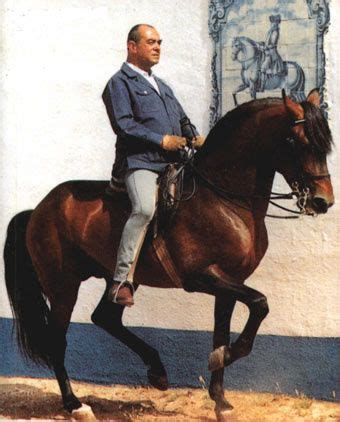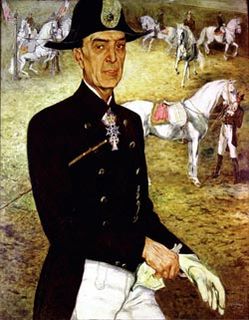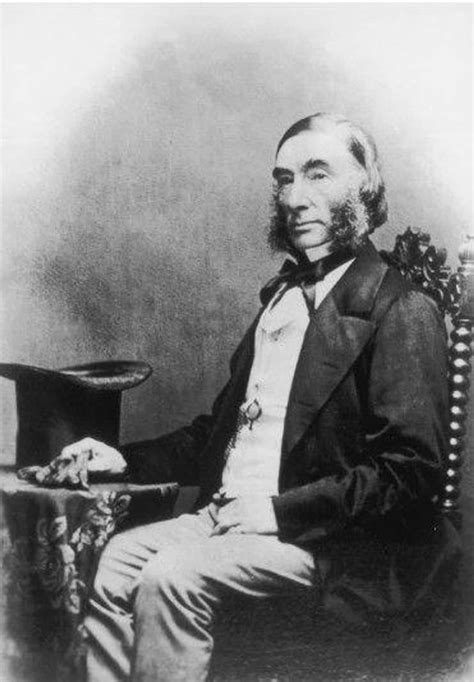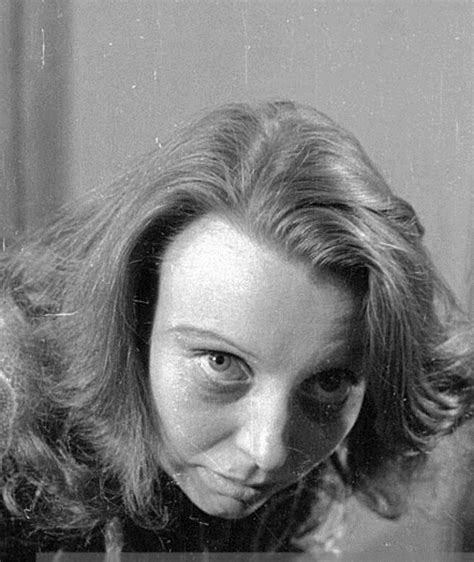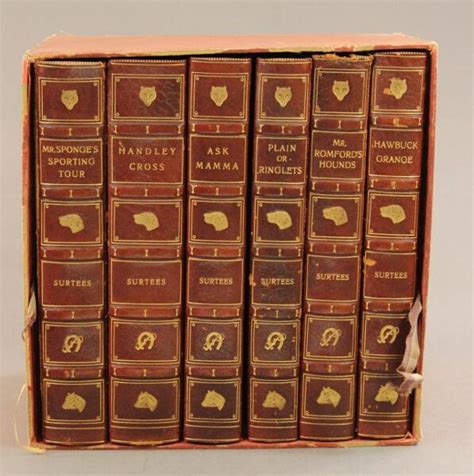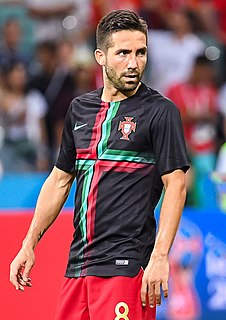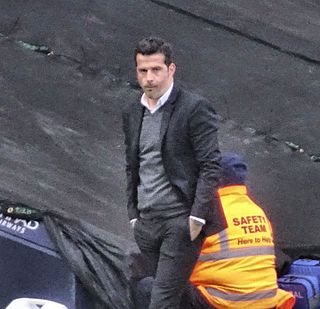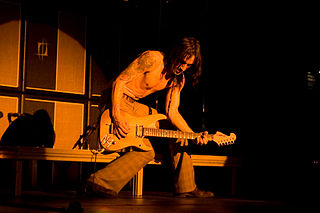A Quote by Nuno Oliveira
When the rider demands the piaffe, he has to halt the horse a few strides before the latter wants to stop of his own accord.
Related Quotes
One might compare the relation of the ego to the id with that between a rider and his horse. The horse provides the locomotor energy, and the rider has the prerogative of determining the goal and of guiding the movements of his powerful mount towards it. But all too often in the relations between the ego and the id we find a picture of the less ideal situation in which the rider is obliged to guide his horse in the direction in which it itself wants to go.
[There, in War Horse] very little CGI. What happened there - because the horse was running very close to the trench, we had a rider. So in few instances, we had a rider dressed in a green suit. The rider would guide the horse through the frame, and through CGI [we removed] the rider. But that's about it.
Well could he ride, and often men would say, "That horse his mettle from his rider takes: Proud of subjection, noble by the sway, What rounds, what bounds, what course, what stop he makes!" And controversy hence a question takes, Whether the horse by him became his deed, Or he his manage by the well-doing steed.
Would you have done that in his place? Would you have left him and gone on?" "Of course I would!" Halt replied immediately. But something in his voice rang false and Horse looked at him, raising one eyebrow. He'd waited a long time for an opportunity to use that expression of disbelief on Halt. After a pause, the Ranger's anger subsided. "All right. Perhaps I wouldn't," he admitted. Then he glared at Horace. "And stop raising that eyebrow on me. You can't even do it properly. Your other eyebrow moves with it!
The functional importance of the ego is manifested in the fact that normally control over the approaches to motility devolves upon it. Thus in its relation to the id it is like a man on horse back, who has to hold in check the superior strength of the horse; with this difference, that the rider tries to do so with his own strength while the ego uses borrowed forces.
Maybe we should have gone with him," he said, a few minutes after his friend was lost to sight. "Three of us would make four times the noise he will," Halt said. Horace frowned, not quite understanding the equation. "Wouldn't three of us make three times the noise?" Halt shook his head. "Will and Tug will make hardly any noise. Neither will Abelard and I. But as for you and that moving earthquake you call a horse..." He gestured at Kicker and left the rest unsaid.
